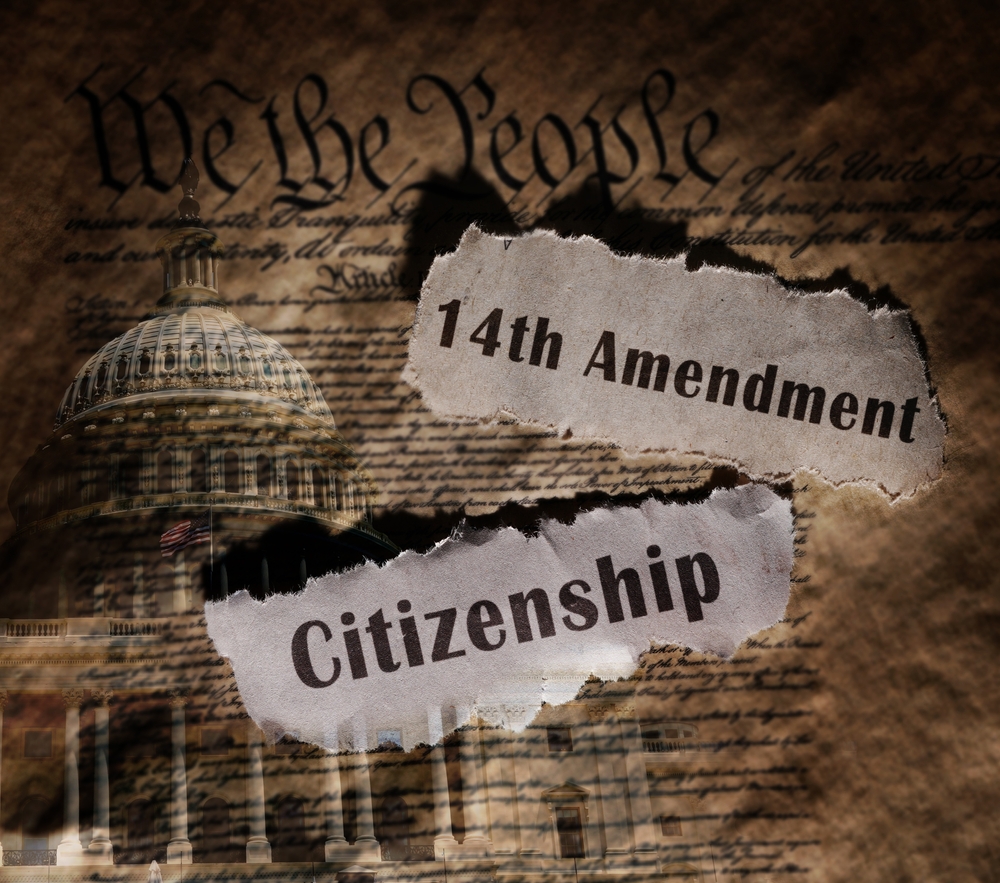Think Immigration: Birthright Citizenship – America’s Legacy

Almost all of us have a story of a family member coming to America, of building a life here, of raising a family. There are massive stains on our nation’s history when it comes to treatment of indigenous people, slavery, and war. But for more than 150 years, one stalwart guarantee of equality has existed in the U.S.: that if you were born here, with rare and very specific exceptions, you were born a citizen with all the rights and obligations thereof. This isn’t how it happens in much of the world, and birthright citizenship is a legacy worth protecting.
Types of Citizenship Acquisition
Jus Sanguinis (Citizenship by Descent)
Most countries, including China, India, Italy, Japan, and Singapore, follow jus sanguinis, where citizenship is inherited from one’s parents regardless of birthplace. Birth on national soil alone does not grant citizenship.
Conditional Jus Soli (Citizenship by Birth Under Certain Conditions)
Some nations combine principles of jus sanguinis and jus soli, granting citizenship at birth if specific criteria are met—such as parental citizenship, residency, or legal status. Examples include Australia, France, Germany, Ireland, and the United Kingdom.
Unconditional Jus Soli (Birthright Citizenship)
Unconditional jus soli—automatic citizenship by birth on national soil—exists mainly in the Americas, including the U.S., Canada, Mexico, and most Latin American and Caribbean nations. Few others, like Lesotho, Fiji, and Pakistan (with restrictions), follow this model. The prevalence of birthright citizenship in the Americas reflects historical efforts to promote immigration and nation-building.
Birthright Citizenship in the United States
The U.S. Constitution’s Fourteenth Amendment (1868) guarantees citizenship to “all persons born or naturalized in the United States, and subject to the jurisdiction thereof.” This overruled the infamous Dred Scott v. Sandford (1857) case, which denied citizenship to enslaved people of African descent. The 14th amendment’s guarantee that anyone born on U.S. soil was a U.S. citizen no matter their heritage was reaffirmed in United States v. Wong Kim Ark (1898), which held that children born in the U.S. to immigrants are U.S. citizens. Congress later confirmed this principle through the 1924 Indian Citizenship Act, which declared that Native Americans were U.S. citizens. In Fitisemanu v. United States (2021), the Court ruled that people born in unincorporated territories like American Samoa are “non-citizen nationals” unless Congress grants citizenship, elaborating the circumstances under which U.S. citizenship was not automatic, thereby clarifying further that to be born on actual U.S. soil bestows U.S. citizenship. The 14th amendment excludes only children of diplomats or enemy occupiers—not immigrants subject to U.S. law. Courts have consistently reaffirmed this understanding for over a century.
Recent Challenges
While most legal scholars agree that birthright citizenship is constitutionally protected, political efforts by the current administration to limit it continue. In 2025, President Trump issued Executive Order 14160, seeking to deny citizenship to children born to undocumented or temporary-status parents. Federal courts immediately blocked the order as unconstitutional. Judges ruled that only a constitutional amendment or Supreme Court reinterpretation could alter the Fourteenth Amendment’s Citizenship Clause.
Could Birthright Citizenship Be Revoked?
Because birthright citizenship is enshrined in the Constitution, it can likely only be revoked by:
- A constitutional amendment, requiring two-thirds of Congress and three-fourths of states, or
- A Supreme Court reversal of precedent—an unprecedented move.
The Supreme Court in Afroyim v. Rusk (1967) also confirmed that citizenship cannot be taken away without voluntary renunciation, with the exception of denaturalization proceedings.
The Case for Birthright Citizenship
Critics argue birthright citizenship encourages illegal immigration (“anchor babies”) and strains public services. However, evidence shows otherwise: undocumented immigrants usually are not able to gain legal status through U.S.-born children, and research shows immigrants consistently contribute more in taxes than they receive in benefits.
Supporters emphasize that birthright citizenship prevents a hereditary underclass by avoiding different treatment of legal versus illegal immigration, ensures equal treatment, and promotes integration. It also avoids bureaucratic chaos—requiring proof of parental status for every birth would overwhelm state systems and create stateless children, as seen in the Dominican Republic.
Birthright citizenship embodies American ideals of equality and opportunity, ensuring that all born here share in the nation’s promise regardless of ancestry. It has fueled immigrant hope for generations and remains a cornerstone of what it means to be American.
The Fourteenth Amendment firmly establishes that anyone born on U.S. soil is a citizen, with rare exceptions. Changing this would demand a constitutional amendment or a radical Supreme Court reinterpretation. Birthright citizenship is not merely a legal doctrine—it is a defining element of American identity and democracy, and to change it in any way would fundamentally alter our understanding of what it is to become – and be – American.